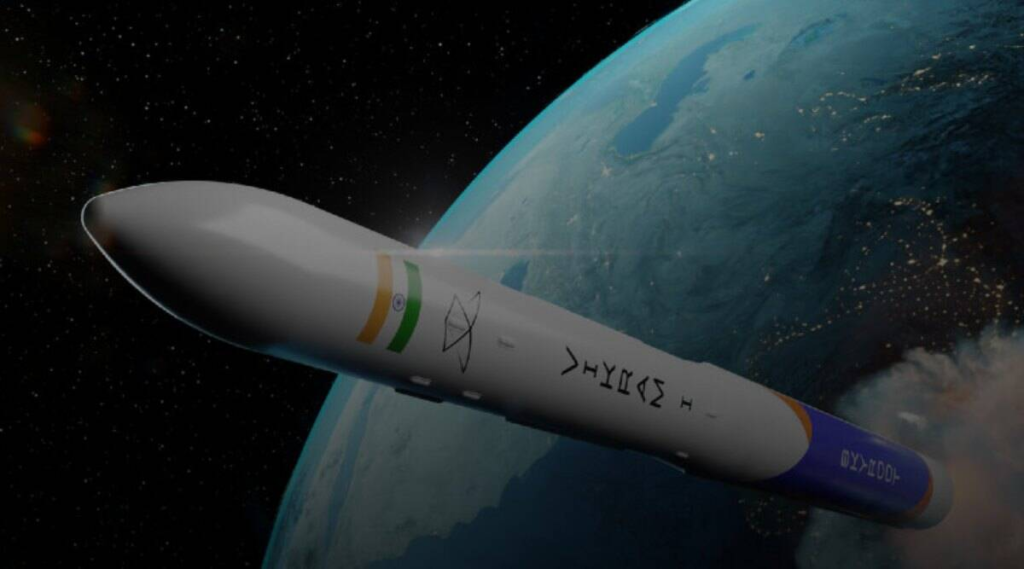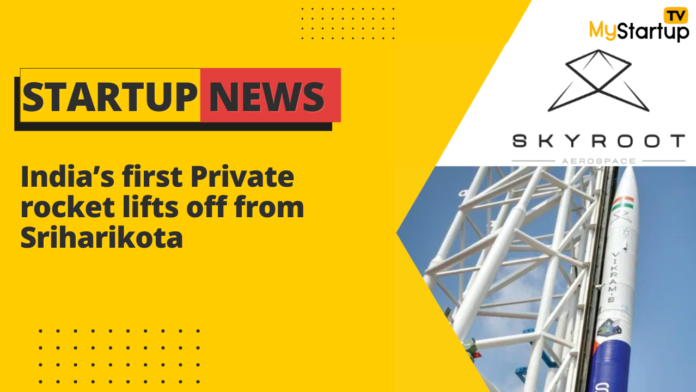The Indian space program has marked another milestone with the successful lift-off trails by a private space company.
Indian space startup -SkyRoot successfully demonstrated its capability to achieve lift-off of its rocket named Vikram -S.
Indian Space History
This is the first time an Indian private space company performed and achieved a feast. Since the launch of Indian space programs decades ago, the country’s space programs have been planned and executed by ISRO(Indian Space Research Organisation) due to the complexity and cost involved in the sector. However, in the past decade, many private companies globally have ventured into the space program – with the American SpaceX being the leader.
The Space Journey
From India’s first satellite, Aryabhatta released in 1975, to EOS-04 in 2022, India’s space adventure has spanned 47 years and over 120 satellites.
Bhaskara-I – an experimental satellite for earth observations was launched on June 7, 1979. The arrival of PSLV in the 1990s became a major boost for the Indian space program. With the exception of its first flight in 1994 and two partial failures later, PSLV had a streak of more than 50 successful flights.
Former engineers and scientists from ISRO collectively based Skyroot, 2018, an aerospace company, successfully launched Vikram-S, India’s first private rocket.
Space Gets Lease of Life
With the advent of startup culture and push and support from the government, India also saw mushrooming of numerous Indian space startups. According to crunchbase data, India’s space-tech startup space has won more fund flow in the last two years than ever before. The launch was a reflection of the boom in the Indian space sector. Prime minister once this year said that the private sector, which was formerly a vendor to the department of space controlled ISRO, has now been allowed to play the role of a big winner in the space sector.
The Union government in June 2020 had opened space exploration to private players through the Indian National Space promotion and authorisation centre which serves as an autonomous agency in the department of space.
Challenges
The Indian space program faced and overcame multiple challenges, including facing international sanctions in the 90s after the Pokhran-2 nuclear test. The world’s major nuclear powers imposed a technological embargo on India and Pakistan. It is known that Indian scientists used to carry rockets on bicycles for testing. The rocket for India’s first ever rocket launch was carried in parts on a bicycle to the launch site, a church in Thiruvananthapuram in 1963. The launch sent a NASA-made Nike-Apache rocket to space and led to the foundation of Indian Space Research Organisation (ISRO) by Vikram Sarabhai on August 15, 1969.

Indian space startups are also been facing challenges related to funds, “Majority of the space-tech startups are capex heavy in nature with a longer gestation period,” said Vipul Patel, Partner – Seed Investing, CIIE CO, which has invested in space-tech startups such as Agnikul, Bellatrix, ePlane and GalaxEye.
Raja Lahiri, a partner at Grant Thornton Bharat said that, The opportunity for space-tech in India is large and appropriate government support, investor funding and talent would be key to make India a space-tech hub for the world.
Vikram- S Soaring into History
The rocket reached an altitude of 81.5 Km with 3 payloads weighing eighty-three kg. Developed by a 200-engineer team within a record time of two years, Vikram-S is powered by solid fuelled propulsion, cutting-edge avionics and a carbon fibre core structure. It splashed down into the Bay of Bengal at around 115.6 Km from Sriharikota after 4.84 minutes of flight. “We made history today by launching India’s first private rocket. It is a symbol of new India, and just the Prarambh (beginning) of a great future.” said Pawan Kumar Chandana, Co-Founder Skyroot Aerospace.

Future of the Indian Space program
According to Somanath (fullname), ISRO leader, there are 100 registered startups. ISRO is working on future satellite missions like Aditya L-1, Chandrayaan-3 mission, Gaganyaan mission, Venus Orbiter Mission, and NISAR mission, among others. Aditya L-1 is a planned coronagraphy spacecraft to study the solar atmosphere.
New Space Hero
Pawan Kumar Chandana and Naga Bharath Daka together founded Skyroot Aerospace in the year 2018. On 20 November 2020, Skyroot Aerospace entered into a memorandum of understanding with Dhruva Space, an Indian private satellite manufacturer. On 27 January 2022, Skyroot Aerospace raised $4.5 million in a bridge round to Series B funding led by Google’s founding board member Ram Shriram’s Sherpalo Ventures. Co-founder Pawan Kumar Chandana talks to MyStartup TV at the sideline of T-Hub 7th Foundation day and briefs about the first private rocket built.




